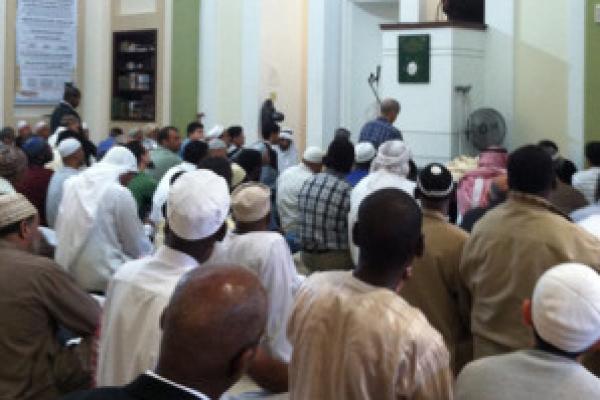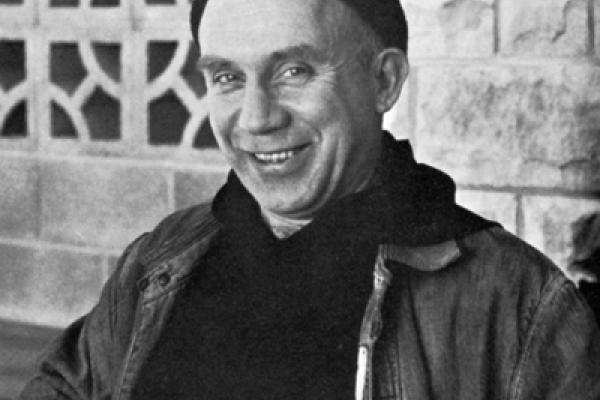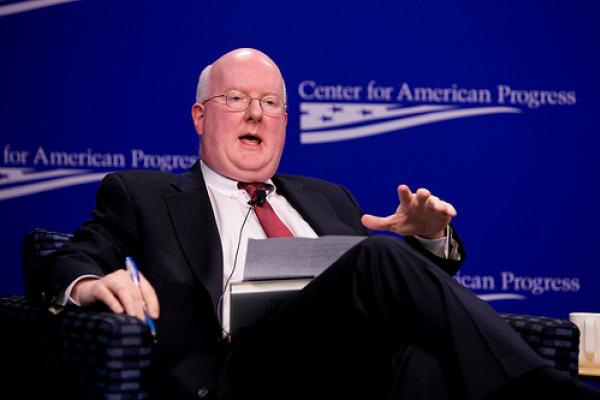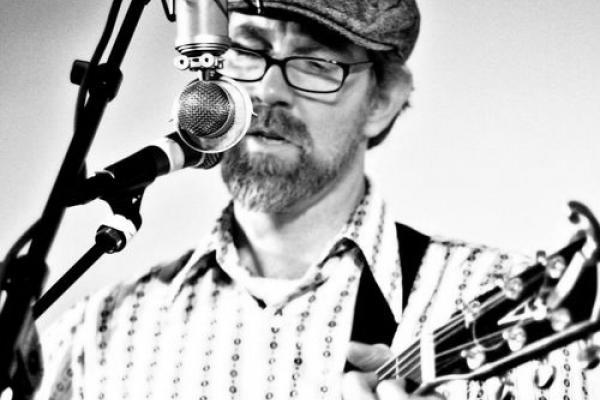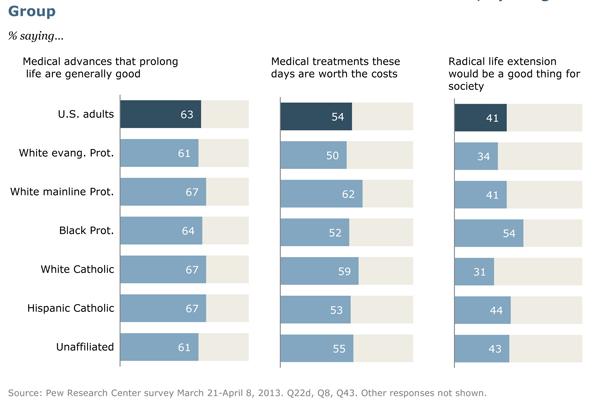In their holiday Eid al-Fitr khutbas, or sermons, on Thursday many imams across the country noted a growing climate of acceptance in America but urged Muslims not to forget the problems facing their communities in the U.S. and overseas.
“The Eid khutba is like the State of the Union address,” said Oklahoma-born convert Suhaib Webb, imam of the Islamic Society of Boston Cultural Center, the biggest mosque in New England, to an overflowing crowd — men dressed in crisp robes, tunics, and three-piece suits, women in black abayas, long floral wraps, and colorful headscarves.
“Our community is at a unique crossroads,” Webb said, issuing a call for older Muslim generations to allow younger generations to have greater roles in community affairs. “There are a lot of young people with a lot of excitement, and a lot of old people with a lot of fear. And that’s not a healthy thing.”
Don’t sing love songs, you’ll wake my mother
She’s sleeping here right by my side
And in her right hand a silver dagger,
She says that I can’t be your bride.
— from “Silver Dagger” by Joan Baez
It was their song — the young, winsome brunette and her silver-pated lover with the sparkly eyes.
“All the love and all the death in me are at the moment wound up in Joan Baez’s ‘Silver Dagger,’” the man wrote to his lady love in 1966. “I can’t get it out of my head, day or night. I am obsessed with it. My whole being is saturated with it. The song is myself — and yourself for me, in a way.”
He yearned for her. He was heartbroken. And he was Thomas Merton — the Trappist monk, celebrated author, and perhaps most influential American Catholic of the 20th century.
It’s a chapter of the thoroughly modern mystic’s life that is no secret to his legions of fans, detractors, and scholars of his prolific work, including the best-selling autobiography, The Seven-Storey Mountain.
Now Merton’s complex love life is the subject of a forthcoming feature film, The Divine Comedy of Thomas Merton.
Last Saturday Muslims throughout the world celebrated Laylat ul-Qadr, usually translated in English as the Night of Power. It is part of the month of Ramadan and commemorates the night when Allah came to Muhammad with the first revelation of the Qur’an. The Night of Power is based on chapter 97 of Islam’s Holy Book. The Qur’an has 114 chapters, which are generally ordered from longest to shortest. So, chapter 97 is short enough to quote in full here:
In the name of God, the Lord of Mercy, the Giver of Mercy,
We sent it down on the Night of Power. What will explain to you what the Night of Power is? The Night of Power is better than a thousand months; on that night the angels and the Spirit descend again and again with their Lord’s permission on every task; [there is] peace that night until the break of dawn.
The “secular world” has liars and thieves, adulterers, cheaters, and hypocrites. It’s a place full of child molesters, domestic abusers, and addicts. Where loneliness is rampant, mental illness is on the rise, and individuals routinely try to numb their pain via drugs, alcohol, and sex. Divorce is everywhere, pornography infects the minds of millions, and infidelity occurs on a regular basis.
The church often presents itself as an alternative to the “real world,” a place where these things don’t exist.
Many churches refuse to admit that these problems are affecting them. In reality, there is little statistical difference between Christians and non-Christians relating to these issues. Christians don’t receive a special pass that protects them from experiencing mental illness, suffering, struggling with addiction, abusing other people, being abused, or failing.
Our faith in Christ gives us hope and strength and courage, but it doesn’t erase reality, and it isn’t meant to create a flawless utopia where we can escape from the world’s problems. But many churches attempt to do just that — trying to create the perception of perfection.
In some church communities, there is the appearance that porn, sexual abuse, and rampant sin don’t exist. Even non-sinful things (mental illness, poverty, etc.) are treated as stigmas that are intentionally shunned. This is often misinterpreted as holiness — it’s not.
Amid persistent criticism that the U.S. marginalizes religion and religious people in its foreign policy, Secretary of State John Kerry Wednesday tapped ethicist and campaign adviser Shaun Casey to lead the State Department’s new Office of Faith-Based Community Initiatives.
Casey is a professor of Christian ethics at Wesley Theological Seminary in Washington and advised President Obama’s campaign and other Democrats on outreach to religious voters.
Troy Bronsink’s meditative live album Songs to Pray By stretches its sonic arms to embrace every listener with expansive words of spirited awe and awesome humility, with ecstatic waves of audio grace and rhythmic gravity.
Bronsink and his band bring to church what we’ve seen out on the festival circuit for years: a shimmery and psychedelic use of sound and language to elevate listeners who choose to inhabit a song as if it were wings, the place where the spirit soars and the heart sings. We don’t often associate noodly guitars and trippy percussion with the worship sound, which is exactly why this album is such a perfect addition to the praise genre.
A solo Bronsink will be presenting his musical work tomorrow at the Wild Goose Festival. We both took a break from packing and planning our journeys to North Carolina for this email interview.
Noah’s grandfather Methuselah lived to the ripe old age of 969 and Moses reached 120, but most Americans would be happy to make it into their 90s, according to a new study.
Black Protestants and Hispanic Catholics are the most likely religious groups to say “radical life extension” — living to age 120 or more — would be good for society, according to a new Pew Research Center study, “Living to 120 and Beyond,” released Tuesday.
The speculative “Living to 120 and Beyond” survey comes against the backdrop of U.S. Census Bureau projections that suggest by 2050, one in five Americans will be 65 or older, and more than 400,000 will be 100 or older.
As a kid, the school day revolved around recess. The bell rang, the books closed, and we bolted out of the building and onto the playground. For a few brief minutes anything was possible. Imaginations ran wild, transporting us to far off lands and transforming us into superheroes and sports stars. We cemented friendships and started fights; we formed alliances and enemies. And while our teachers and parents assumed that math, science, reading, and social studies structured our day, in reality our lives were defined by what transpired during recess.
Congress is in recess during the month of August. While many assume they have taken an extended vacation, nothing could be further from the truth. Recess is just as important now as it was when we were kids, but the rules have changed. Here are five things you need to know about the next month.
